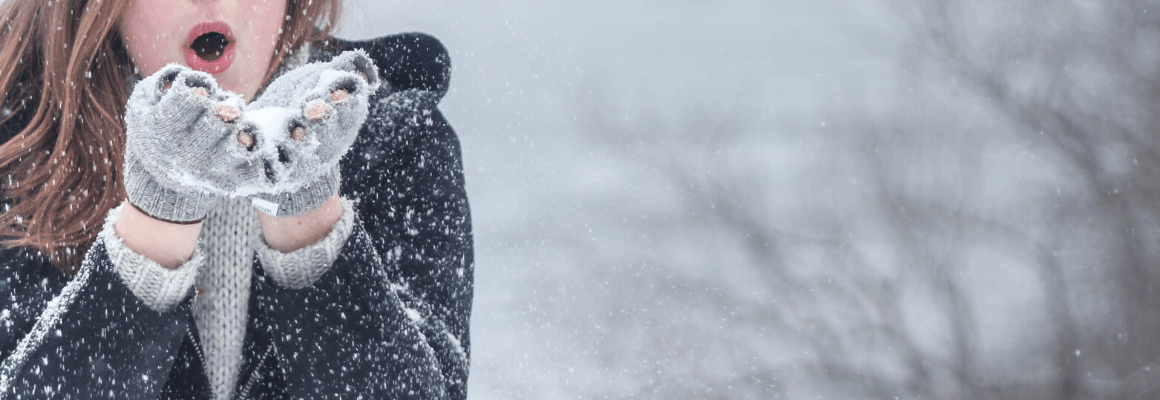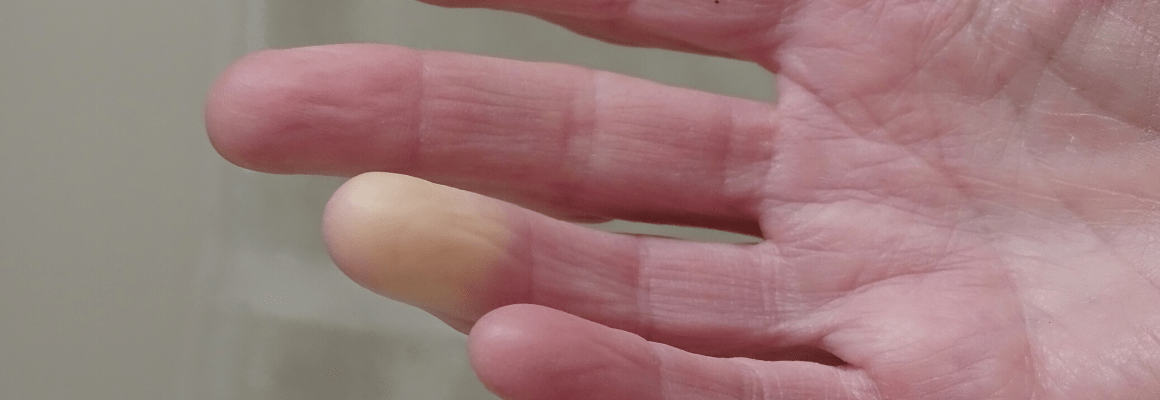Winter and eczema do not go hand-in-hand. In fact, the winter season can be downright difficult for those suffering from eczema, thanks to changing temperatures and dry air. Many people experience eczema flare-ups, especially on parts of their skin that are exposed to winter elements.
Read on for our 10 tips on combating the cold so that you can control your eczema in winter.
Moisturize Daily
This may be an obvious one, but it’s also super important. Due to a damaged skin barrier, those with eczema already have drier skin than usual.
Plus, the changing temperature and dry, winter air make sensitive skin even more prone to flare-ups. To prevent exacerbating your symptoms, apply an oil-based moisturizer several times a day. The more oil a moisturizer contains, the better it is at protecting your skin against moisture loss.
That’s why we love this Organic Manuka Honey Cream. Made with six, natural ingredients - including Manuka honey and beeswax - it’s rich in emollients and highly effective at keeping even the driest of skin properly hydrated.
Avoid Hot Baths
While it can be tempting to draw up a hot bath on a cold winter’s night, don’t do it! Hot water is actually horrible for your skin because the heat dries it out even more. Stick to lukewarm water instead and try to bathe or shower less frequently as water can strip the skin of its natural, protective oils. After you finish washing, be sure to pat dry your skin with a towel to avoid exacerbating your symptoms by rubbing.
Use a Gentle Soap
There are plenty of soaps on the market but unfortunately, many of them contain harsh chemicals that can be damaging to your skin. To protect your sensitive skin, look for soaps that are natural, and free from alcohol, fragrances, and dyes.
Stay Hydrated
You should be drinking at least 8 glasses of water per day to keep your body and skin well hydrated.
If you’re bored of plain water, spice things up with a cup of tea, hot chocolate, coffee, or your warm winter beverage of choice instead!
Get Your Vitamin D
A healthy dose of Vitamin D can help control your winter eczema. In fact, a lack of vitamin D can actually weaken your immune system and increase the risk of skin infection.
Unfortunately, winter doesn’t offer much sunshine. We recommend you supplement with these Viva Naturals High Potency Vitamin D3 tablets. Increasing your intake of fatty fish and fish oils can also help.
Invest in a Humidifier
During the winter, the air becomes drier both inside and outside the house. This is bad news for those suffering from eczema as it can lead to painful, cracked skin.
In addition, your home heating system most likely pumps a lot of hot air into your home that can also irritate your winter eczema. To combat the dry heat, use a humidifier. This will help add moisture back into the air which, in turn, will stop your skin from becoming irritated.
Watch What You Wear
Unfortunately, if your favorite ugly Christmas sweater is made from wool, you’ll have to ditch it. This is because certain fibers and rough fabrics - such as wool - can actually irritate your skin and trigger flare-ups.
Other culprits include nylon, polyester, and latex. Our favorite eczema-friendly clothes for winter include:
Long Sleeve Eczema Shirt - Adults and Kids
Remedywear™ Pants - Adults and Kids
Remedywear garments are made with a lightweight fabric that offers the perfect amount of stretch. Plus, they’re comfortable and easy to layer. With natural moisture-wicking fibers, they can be worn as PJs or underneath your clothes to protect your skin from rubbing against rougher materials.
Don’t Forget to Exfoliate
Exfoliate eczema? You bet! It might sound counterintuitive, but exfoliating dry skin is actually beneficial and extremely important for keeping your skin healthy.
By removing the layer of dead skin on the surface, natural eczema treatments have the chance to penetrate deep into the skin and do their job properly.
So, if you’re looking for faster, soothing relief, add exfoliation into your skincare routine.
Eat Eczema Friendly Foods
Keep flare-ups at bay by eating the right foods! Eczema and diet are more closely connected than you may think.
In fact, studies have shown that eating certain foods - such as eggs and shellfish - are common culprits for making eczema worse, while other foods - such as kale, salmon, and broccoli - are known for reducing symptoms. To discover your food triggers, try an elimination diet.
Try Wet or Dry Wrapping
Wet and dry wrap therapy is a great way to provide long-term relief from flare-ups and prevent further irritation. Thankfully, it’s also super easy to do.
Simply apply a natural cream, such as the Organic Manuka Honey Cream mentioned above, and then cover it with a dry or wet layer of clothing.
We recommend these hypoallergenic eczema bandages. Made with TENCEL and anti-inflammatory zinc, they help emollients safely penetrate the skin to help boost healing.
Be sure to wear overnight or for a minimum of two hours. Once you remove the bandage, apply another layer of cream.
What are your best tips for dealing with winter eczema? Let us know on our Facebook page!
References:
https://www.healthline.com/health/skin-disorders/winter-eczema-treatment










